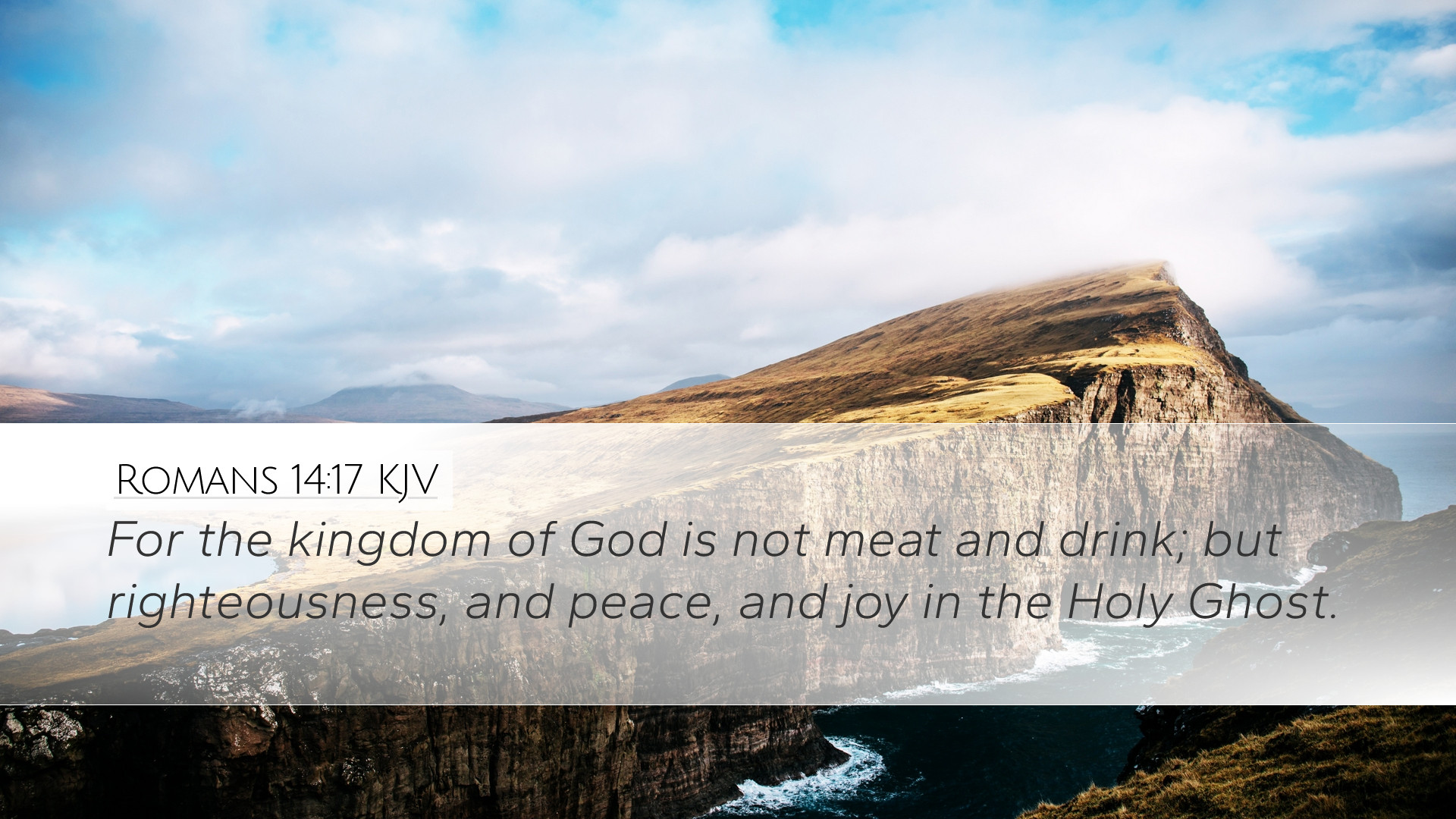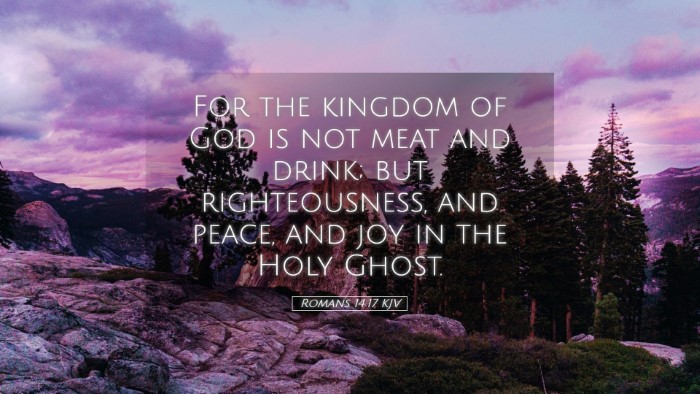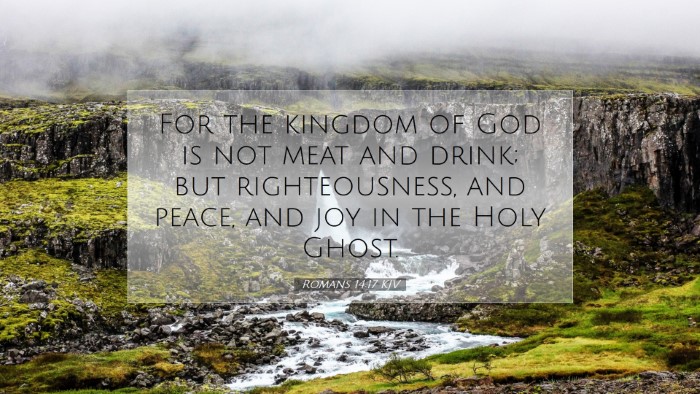Old Testament
Genesis Exodus Leviticus Numbers Deuteronomy Joshua Judges Ruth 1 Samuel 2 Samuel 1 Kings 2 Kings 1 Chronicles 2 Chronicles Ezra Nehemiah Esther Job Psalms Proverbs Ecclesiastes Song of Solomon Isaiah Jeremiah Lamentations Ezekiel Daniel Hosea Joel Amos Obadiah Jonah Micah Nahum Habakkuk Zephaniah Haggai Zechariah MalachiRomans 14:17
Romans 14:17 KJV
For the kingdom of God is not meat and drink; but righteousness, and peace, and joy in the Holy Ghost.
Romans 14:17 Bible Commentary
Commentary on Romans 14:17
Verse Context: Romans 14:17 states, "For the kingdom of God is not a matter of eating and drinking, but of righteousness and peace and joy in the Holy Spirit." This verse serves as a focal point for understanding the essence of the Kingdom of God, emphasizing the spiritual and relational nature of God's reign compared to mere external observances.
Overview of the Kingdom of God
Paul's message in Romans reveals a profound truth about the Kingdom of God. The apostle contrasts the physical rites and customs that some Jewish Christians were struggling to impose on Gentile believers, highlighting that true spirituality transcends rituals.
Insights from Matthew Henry
Matthew Henry notes that this text encapsulates the profound reality of living under God’s rule. He points out that believers should focus on the internal qualities of the Kingdom—righteousness, peace, and joy—which indicate a heart aligned with God, rather than on external conformance to dietary laws or traditions.
- Righteousness: This denotes a right standing with God and acting justly toward others. It emphasizes moral integrity and holiness.
- Peace: This reflects the harmonious relationship between believers and God, as well as among each other. It is a fruit of the Spirit and highlights the communal aspect of faith.
- Joy in the Holy Spirit: A deep-rooted sense of joy that comes from experiencing God's presence, contrary to the temporary pleasures sought through physical indulgence.
Insights from Albert Barnes
Albert Barnes elaborates further on the implications of this verse, emphasizing that the Kingdom of God reflects an internal disposition rather than an external observance of law. He argues that this teaching serves as a corrective to a legalistic approach.
- Internal vs. External: Barnes stresses that adherence to God's law is validated through one's internal state. The focus should shift from mere external compliance to internal transformation.
- The Role of the Holy Spirit: The empowerment and joy found in the Holy Spirit play a fundamental role in Christian living, suggesting that true believers will exhibit these qualities naturally when filled with the Spirit.
Insights from Adam Clarke
Adam Clarke takes a slightly different approach, emphasizing the implications of unity in the church. He indicates that the absence of pursuing these spiritual qualities can lead to divisions within the Christian community.
- Unity through Spirituality: Clarke argues that focusing on righteousness, peace, and joy fosters unity among believers, as these virtues build bonds rather than barriers.
- A Call for Reflection: The verse calls believers to reflect upon their motivations and to seek spiritual rather than fleshly pursuits, aligning with God’s Kingdom values.
The Significance for Today
This verse is both a challenge and encouragement for modern believers and churches today. It prompts introspection about the values that govern our lives and our communities.
- Assessing Priorities: Pastors and scholars should encourage congregants to assess their priorities, ensuring that they align with the essence of God's Kingdom rather than cultural or ritualistic norms.
- Fostering Community: Emphasizing internal qualities can challenge churches to foster deeper, more meaningful relationships that reflect the peace and joy found in Christ.
- Living Out Righteousness: Righteousness should not be seen merely as a standard to achieve but as a relational aspect that enhances our walk with God and our witness to the world.
Conclusion
Romans 14:17 stands as a reminder to all believers that the Kingdom of God is fundamentally about internal qualities nurtured by the Holy Spirit. A life characterized by righteousness, peace, and joy not only reflects an authentic faith but also serves as a testament to the transformative power of the Gospel in a believer's life. This focus can bridge divisions within the church and promote a unified pursuit of the Kingdom of God amidst a world often consumed by material and external pursuits.


